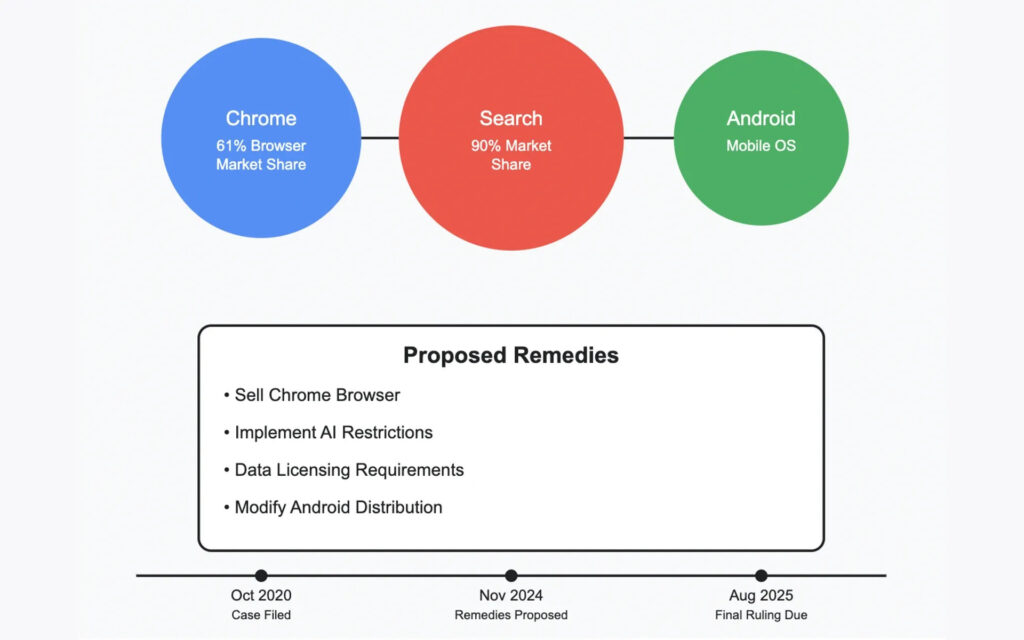
The United States Department of Justice (DOJ) has made significant adjustments to its antitrust case against Google, revising its initial demands while maintaining a strong stance on the tech giant’s search dominance.
Key Changes in the DOJ’s Approach
In a surprising move, the DOJ has dropped its requirement for Google to divest from its artificial intelligence (AI) investments, including its notable stake in Anthropic, an AI research company. This decision marks a shift in strategy, possibly reflecting the growing recognition of AI’s competitive and rapidly evolving landscape.
Despite this concession, the DOJ continues to press Google to divest from its Chrome web browser, citing concerns over the company’s alleged monopoly in search. The DOJ argues that Google’s control over Chrome allows it to reinforce its search engine’s dominance, making it difficult for competitors to gain a foothold in the market.
Google’s Response and Proposed Compromises
Google has strongly opposed the DOJ’s demand to sell Chrome, signaling its intent to appeal any ruling that mandates such a move. The company argues that Chrome’s integration with its search engine does not constitute an illegal monopoly, but rather an effort to provide users with a seamless browsing experience.

As an alternative, Google has proposed offering more flexibility in its default search engine agreements with major partners like Apple. Under this proposal, users would have greater freedom to choose their preferred search engine, potentially addressing some of the DOJ’s competition concerns without requiring a forced divestiture.
Additional Measures to Increase Competition
Beyond the divestiture demands, the DOJ has also introduced measures designed to prevent Google from further solidifying its market dominance. One such provision requires Google to notify the government before making future AI investments, ensuring regulatory oversight over its expanding influence in the AI sector. This move aligns with broader governmental efforts to regulate AI technologies and prevent tech giants from monopolizing the field.
Legal and Industry Implications
The upcoming trial, scheduled for April, will be presided over by U.S. District Judge Amit Mehta. The case has drawn significant attention, with a coalition of 38 state attorneys general and the Alphabet Workers Union-CWA expressing their support for stricter regulations on Google.
If the DOJ succeeds in enforcing its antitrust measures, it could set a precedent for how tech giants operate in both the search and AI markets. A forced divestiture of Chrome would represent one of the most aggressive antitrust actions in recent years, potentially reshaping the competitive landscape of the internet.
Conclusion
The DOJ’s modified approach to its antitrust case against Google reflects a balance between addressing monopolistic concerns and adapting to the complexities of AI investment. With Google preparing to fight back, the outcome of this legal battle will have lasting consequences for the tech industry and digital market competition.
As the trial date approaches, all eyes will be on Washington to see how this case unfolds and whether it will redefine the boundaries of competition in the digital era.



